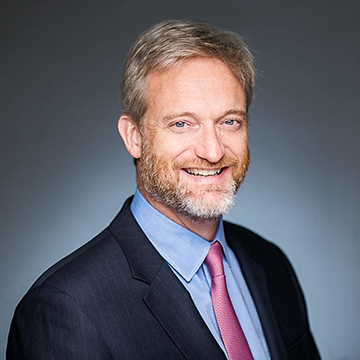Early this morning, President Donald Trump met with European leaders at NATO’s annual summit in Brussels. Below, NSI experts weigh in on the outcome of the summit and what it means for stability in Europe and U.S.-European relations.
July 11, 2018

Jamie Fly – NSI Visiting Fellow; Former Foreign Policy Advisor to Senator Marco Rubio
“NATO is the world’s most successful security alliance. Yet NATO allies cannot rest on their laurels. President Trump’s admonitions regarding burden sharing have produced significant results yet more needs to be done. After almost seventeen years of war, Americans across the political spectrum expect U.S. allies to pull their own weight. The summit declaration approved today by NATO leaders appears to do just that as the alliance works together to tackle traditional and emerging challenges to allied security. Transatlantic security would be best served by more focus on the reality of what NATO is doing on a daily basis to protect its members’ citizens instead of theatrics and personal attacks on allies.”
 Matthew R. A. Heiman – NSI Visiting Fellow; Former Lawyer, National Security Division, U.S. Department of Justice and the Coalition Provisional Authority, Baghdad, Iraq
Matthew R. A. Heiman – NSI Visiting Fellow; Former Lawyer, National Security Division, U.S. Department of Justice and the Coalition Provisional Authority, Baghdad, Iraq
“President Trump believes Europe takes advantage of the U.S. by enjoying NATO’s security guarantees without paying enough for the benefit. His belief is not unreasonable. In 2014, NATO members pledged to spend 2 percent of their GDP on their militaries. While only the U.S., the U.K., Estonia, and Greece meet that target today, pressure from the U.S. has contributed to Poland, Lithuania, Latvia, and Romania being on target to reach the threshold this year and others reaching this goal in the coming years. It’s important that friends hold each other to account, and blunt talk amongst allies should not threaten the future of NATO. Rather, NATO’s future depends on both financial contributions to military spending by each member and clear plans that ensure NATO resources match the strategic threats posed by Russian hybrid-wars, cyber attacks, and expansionism; instability in the Middle East and North Africa; and the continued risk of radical Islamic terrorism. Hopefully, attendees at the NATO summit this week recognize that the future of the alliance depends on words being matched with deeds.”
Andrew Keiser – NSI Visiting Fellow; Former Senior Advisor, U.S. House Permanent Select Committee on Intelligence
“Since 1949, NATO has been the foundation for transatlantic security. The strength of NATO helped lead to unprecedented stability and prosperity for the West. That said, it has been a long-standing concern of the United States that NATO allies were not doing their fair share to maintain a deterrent against aggressors of the alliance.
Though difficult conversations among friends are probably best held behind closed doors, those quiet conversations rarely led to meaningful reforms in decades past. Perhaps a different approach will lead to a different result that ultimately could be a stronger NATO and a more effective check on Russian President Vladimir Putin’s expansionist intentions”

Dr. Andrea Limbago – NSI Visiting Fellow; Chief Social Scientist, Endgame
“The NATO Summit is traditionally a time to celebrate one of the most successful alliances in history. Instead, this year’s Summit is preoccupied with defense spending and achieving the 2% of GDP target by 2024. Clearly, member-state contributions are essential, but for the most part member-state spending has been increasing over the past four years. This tunnel vision on defense spending is an unhelpful distraction away from the constructive dialogue required to address the core national security threats to the U.S. and its NATO allies.
The member-states are simultaneously defending threats at home and abroad. The collective security alliance must continue to evolve and strengthen to counter the twenty-first century threat landscape. This includes domestic and international terrorist groups, countering disinformation, clarifying the cyber component of Article V, and of course the range of authoritarian regimes who are undermining stability across the globe.
NATO remains extremely relevant to safeguard democratic principles internationally and support U.S. national security. In fact, yesterday the U.S. Senate reaffirmed NATO’s relevance in a 97-2 vote in favor of supporting the U.S. commitment to NATO. Unfortunately, the current unnecessary and self-inflicted internal tensions and divisions within NATO play right into the hands of state and non-state adversaries.”
 Lester Munson – NSI Visiting Fellow; Former Staff Director, Senate Committee on Foreign Relations
Lester Munson – NSI Visiting Fellow; Former Staff Director, Senate Committee on Foreign Relations
“It is a good thing, not a bad thing, to urge our European allies to contribute more substantially to NATO’s defense. Similarly, it is good to urge Germany to untie itself from Russia’s energy predations. The manner of delivery may be awkward and off-putting, but the substance of the president’s message today is sound.”

